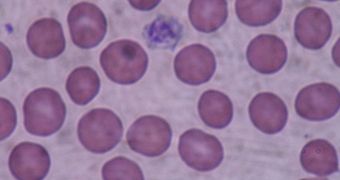For years, scientists have been continuously discovering new factors involved in allowing cancer the breathing room it requires in order to spread throughout the body. In the latest such study, experts found that blood elements called platelets are involved in promoting cancer development as well.
The real reason why cancer is dangerous is rarely the initial tumor. More than 90 percent of the people who die from cancer are killed by metastases. These are secondary cancer centers, which develop from locations infected by cancer cells that became separated from the original sites.
For instance, if a person developed liver cancer that goes untreated, then loose cells will spread throughout the body, invading the brain, the lung, the kidneys, bowls and so on. This is the moment which announces the inevitable outcome of the diseases.
Researchers at the Massachusetts Institute of Technology (MIT) were extremely interested in learning about all factors involved in the migration of cancer cells from their initial to their secondary locations.
Previous studies have evidenced that connective tissue and immune system cells are involved in inadvertently helping cancer cells spread. The new data would appear to indicate that platelets, blood cells usually involved in underlying blood clotting, are also involved in this process.
The new investigation was led by the MIT Daniel K. Ludwig professor for cancer research, Richard Hynes. The research learned that the chemical signals the platelets give off are responsible for turning cancer cells more aggressive.
In a paper published in the November 14 issue of the esteemed medical journal Cancer Cell, the MIT team explains that the new data could be used for the creation of new anti-cancer drugs. However, even these therapies would only be effective if cancer is developed before metastasis occurs.
“This work shows that platelets are not just a shield for circulating cancer cells, but also a traveling kit of pro-invasive stimuli,” comments Sloan-Kettering Institute chair of the cancer biology and genetics program, Joan Massagué, who was not a part of the new investigation.
“For nearly three decades platelets have been known to be the richest source of TGF-b in the body, yet it is only now that someone realized what an important role platelets play as a TGF-b source in tumor dissemination,” the expert adds.
Platelets were found to release a molecule called transforming growth factor beta (TGF-beta or TGF-b), which was responsible for promoting the spread of tumor cells from their original locations to everywhere else in the body.

 14 DAY TRIAL //
14 DAY TRIAL //